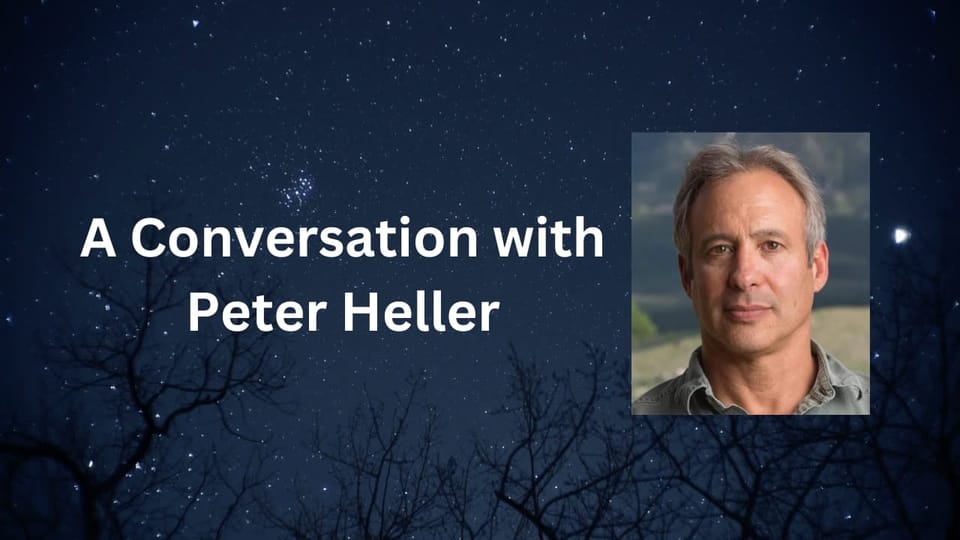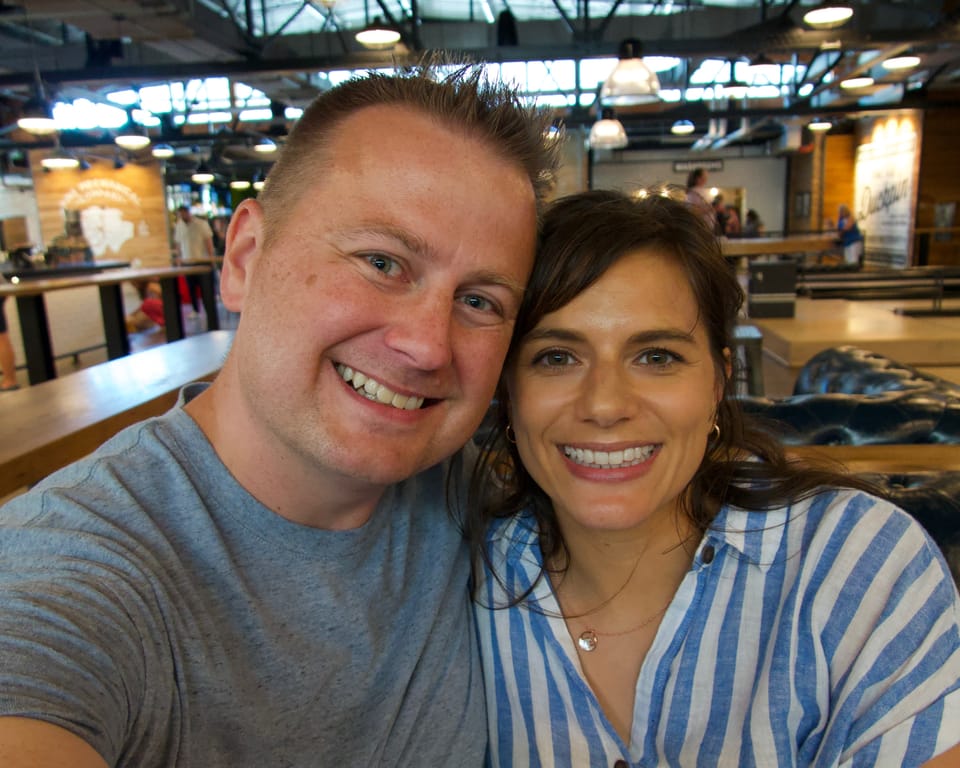Committing to Our Dreams and the Key to Contentment
Two key ideas from Schwarzenegger's book, Be Useful

In Be Useful: Seven Tools for Life, Arnold Schwarzenegger highlights key moments from his life as a bodybuilder, actor, and governor while paying special attention to the principles guiding his decisions. At the heart of the book is a deep appreciation for our interconnectedness, a fundamental belief in our mutual need for each other. Rather than focus on each of the seven tools Schwarzenegger outlines, I want to focus on two quotes that most resonated with me. One deals with committing to our dreams, and the other is a powerful reminder that our reactions to life's challenges are opportunities to grow and even find peace.
Committing to Yourself and the World
Have you ever had a dream for your life that you were almost too scared to admit to yourself, let alone the world? I have, and I think most of us do.
I wanted to start a business for years, and I would talk about it, but I didn’t.
I wanted to be healthier for years, and I would tell my wife occasionally, but I didn’t fully commit.
I wanted to share my thoughts through writing and vlogging with the world, but I hesitated to type and record.
Even though I had read Austin Kleon’s excellent Show Your Work!: 10 Ways to Share Your Creativity and Get Discovered, I kept most of my process to myself, preferring the perfect over the published.
So, this passage from Be Useful felt directed at me.
For some, publicly committing to their vision is essential, because they get caught up in planning instead of executing. Dreaming is always easier than doing. Publicly committing to a big goal is a great way to get moving. It is also a critical step for the many of us who need people to know about our dreams in order for those dreams to reach their full potential. That could be opening a restaurant or an auto shop, or starting a political campaign—anything that needs customers or supporters of some kind. If you need people to know about whatever your thing is, you’ve got to tell them. And if you really want to supercharge your dream’s exposure to the world, don’t just tell them about it, act like it’s already come true. You do that by talking openly about what you’re working toward but removing the phrase “will be” from your vocabulary.
This passage made me reflect: What dreams do I hold dear that I haven’t shared fully?
I’ve settled on the following answers, at least for now.
- I’m committed to being a happy, healthy father and husband. This means I’ll do two things: (a) continue my weight loss journey (down 28 pounds this year!) and (b) lean into my hobbies (e.g., gaming, tech, writing, vlogging). In both cases, it’s been tempting to withhold my progress or interests for fear of what others might think. But here’s a truth I’ve discovered in my 38 years: the vast majority of people don’t care what you’re doing, so worrying about their judgment is both foolish and, inadvertently, self-absorbed. People are rightfully thinking about their own lives and those of their families.
- I’m committed to leading an education consulting business that helps schools achieve better outcomes for students. I’ve always been less hesitant to declare professional goals, maybe because it felt like a necessary part of “having a career.” But if I’m being honest, there’s still a bit of imposter syndrome that lingers, a nagging whisper that SkyBound Education won’t work out in the long run. “It’ll be gone in a few years,” the voice says.
So, I invite you to ask yourself a question: What dreams do you have stored up inside that might benefit from being shared with others?
Our Reactions Enable Us to Find Peace
Having the right mindset and perspective are critical tools for taking risks and being content. Comparison truly is the thief of joy, and our reactions to the “slings and arrows of outrageous fortune” (a Hamlet reference I couldn’t resist as a former English teacher) are far more important than the adverse situations we actually encounter. Here’s how Schwarzenegger puts it:
If you can choose joy over jealousy, happiness over hate, love over resentment, positivity over negativity, then you have the tools to make the best of any situation, even one that feels like failure.
It’s deceivingly simple and easier said than done (to use another cliché), but I’ve found that the key to contentment is found in the moments immediately after something “negative” happens. As Viktor Frankl, author of Man’s Search for Meaning and Holocaust survivor, writes, “Forces beyond your control can take away everything you possess except one thing, your freedom to choose how you will respond to the situation.”
In other words, how we react to challenges is an opportunity for contentment, for shifting our perspective from one of disappointment to one of growth. From one of defeat, to one of lesson(s)-learned.
So, if you're frustrated or feeling down, I invite you to consider what control you still have. How will you respond?
One More Reflection
No one is perfect. At the beginning of Be Useful, Schwarzenegger acknowledges that he made terrible decisions that caused his family tremendous pain. He owns it. But I don't think that makes any of his insights less valuable. We're all a work in progress, and we shouldn't discard wisdom where it can be found.
Worthy of Your Time
Each of the books mentioned in this post are well worth your time. In case it's helpful, here are links to them on Amazon.



